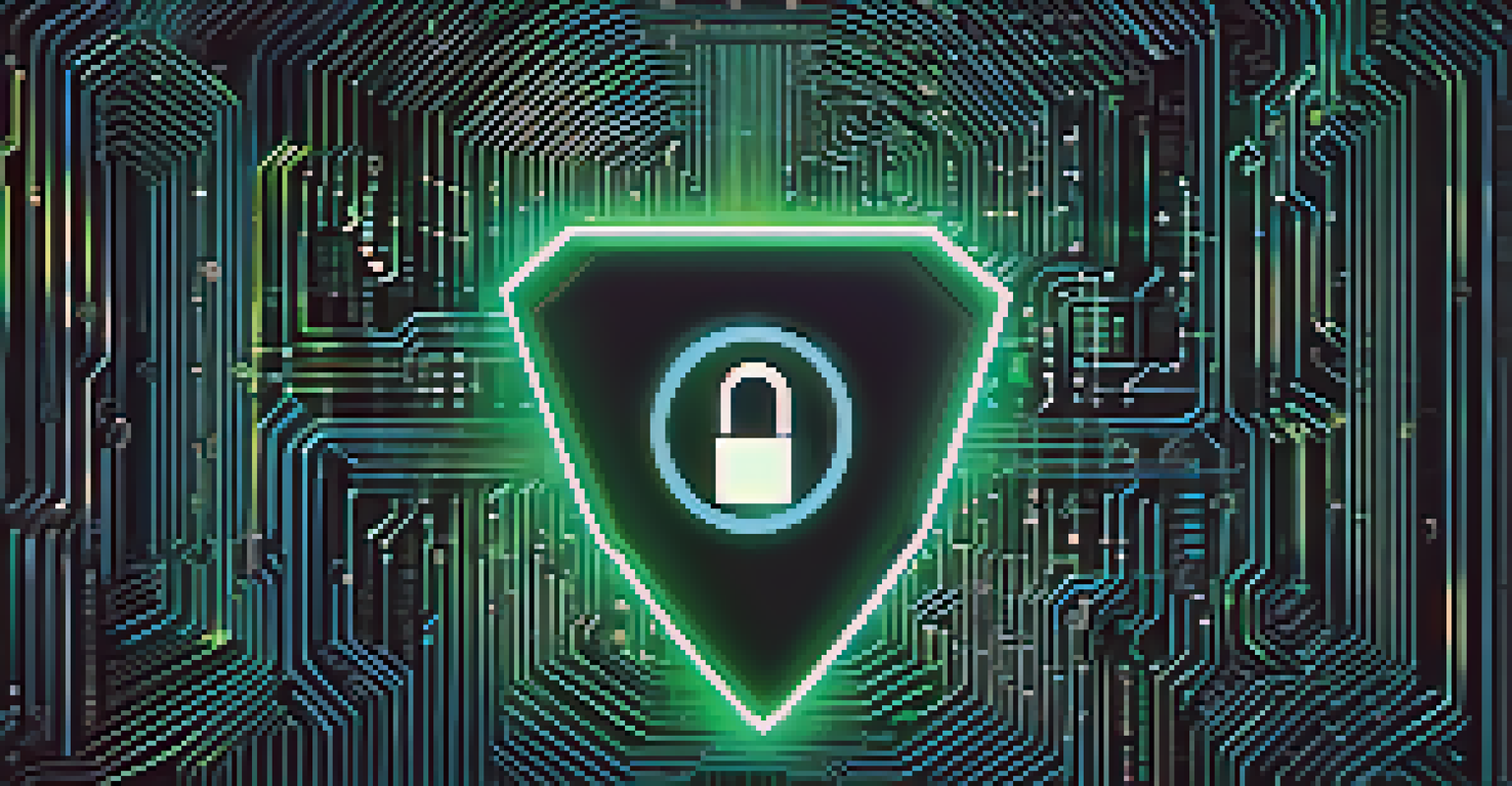How to Secure Your Bitcoin Transactions on Public Networks

Understanding the Risks of Public Networks for Bitcoin
When using Bitcoin on public networks, security is a major concern. Public Wi-Fi networks, for example, can expose your transactions to potential hackers. These networks are often less secure, making it easier for malicious actors to intercept data.
Security is not a product, but a process.
It's similar to sending a postcard through the mail; anyone can read it along the way. If you’re not careful, your Bitcoin wallet details could be vulnerable to theft. Understanding these risks is the first step to better security.
Being aware of these vulnerabilities allows you to take proactive steps to protect your assets. Keeping this in mind can help you navigate the world of Bitcoin transactions more safely.
Use a VPN for Enhanced Security on Public Networks
A Virtual Private Network (VPN) creates a secure tunnel for your internet connection. When using Bitcoin on public networks, a VPN encrypts your data, making it much harder for hackers to access your information. Think of it as a protective cloak that keeps your online activities private.

In addition to encrypting your data, a VPN can also mask your IP address, adding another layer of anonymity. This makes it more difficult for anyone to track your Bitcoin transactions back to you. It's a simple yet effective way to enhance your security.
Protect Bitcoin with VPN Security
Using a VPN encrypts your data on public networks, making it harder for hackers to access your Bitcoin information.
Many VPN services are available, so you can choose one that fits your needs and budget. Investing in a good VPN can be a small price to pay for peace of mind while conducting transactions.
Opt for Hardware Wallets for Storing Bitcoin Safely
Storing your Bitcoin in a hardware wallet is one of the safest options available. Unlike software wallets that are connected to the internet, hardware wallets store your private keys offline. This means that even if someone hacks into your computer, they can't access your Bitcoin.
The best way to predict the future is to create it.
Think of a hardware wallet as a safe for your cash; it keeps your assets secure and out of reach. Popular options include Trezor and Ledger, which offer robust security features. By using a hardware wallet, you significantly reduce the risk of theft.
While hardware wallets may require an upfront investment, the peace of mind they provide can be invaluable. They are a worthwhile tool for anyone serious about securing their Bitcoin holdings.
Enable Two-Factor Authentication (2FA) for Extra Security
Two-Factor Authentication (2FA) adds an extra layer of security to your Bitcoin transactions. By requiring a second form of verification—like a code sent to your phone—it makes it harder for unauthorized users to access your account. It's similar to having a double-lock on your door.
Most Bitcoin exchanges and wallets support 2FA, making it a straightforward addition to your security protocol. This means that even if someone obtains your password, they won’t be able to access your account without that second verification step. It's a simple but effective measure to enhance your security.
Store Bitcoin in Hardware Wallets
Hardware wallets keep your private keys offline, providing robust security against potential online threats.
Setting up 2FA is generally quick and easy, so there's no reason to skip this step. The added security can be a lifesaver in the event of an attempted breach.
Be Cautious with Public Wi-Fi When Transacting
While it’s convenient to use public Wi-Fi, it can be a risky choice for Bitcoin transactions. Hackers often set up fake public networks to capture sensitive information. If you must use public Wi-Fi, be extremely cautious about accessing your Bitcoin wallet.
Imagine you’re at a coffee shop; just because the Wi-Fi is free doesn’t mean it’s safe. Always verify the network with staff to avoid connecting to a fraudulent one. This small precaution can save you from losing your Bitcoin.
If possible, avoid conducting transactions over public networks altogether. Opting for mobile data or a secure connection can help protect your information.
Stay Informed About the Latest Security Threats
Keeping yourself updated on the latest security threats is crucial for safeguarding your Bitcoin. Cybersecurity is an ever-evolving field, and new vulnerabilities can emerge quickly. By staying informed, you can adjust your security practices accordingly.
Consider subscribing to reliable cryptocurrency news sources or forums to stay in the loop. This way, you can learn about potential scams or hacks that may affect Bitcoin users. Being proactive can help you protect your investments.
Enable 2FA for Extra Security
Two-Factor Authentication adds a crucial verification step, making unauthorized access to your Bitcoin account much more difficult.
Engaging with the community also helps you share knowledge and best practices. Sharing experiences can strengthen everyone's security posture, creating a safer environment for all Bitcoin users.
Regularly Update Your Software for Maximum Protection
Regularly updating your wallet software and devices is essential for maintaining security. Software updates often contain patches for known vulnerabilities, making them critical for your protection. Think of it as getting regular check-ups to ensure your health; it keeps everything running smoothly.
Neglecting to update your software can leave you exposed to attacks that have already been addressed in newer versions. Most wallets offer automatic updates, so take advantage of this feature. This way, you won't have to remember to manually check for updates.

By staying current with updates, you enhance your overall security posture. It's a small effort that can yield significant benefits in protecting your Bitcoin transactions.